Tibetan soldiers strengthen top regiment
Updated: 2014-04-25 08:02
By Hu Yongqi in Yunnan province (China Daily)
|
||||||||
|
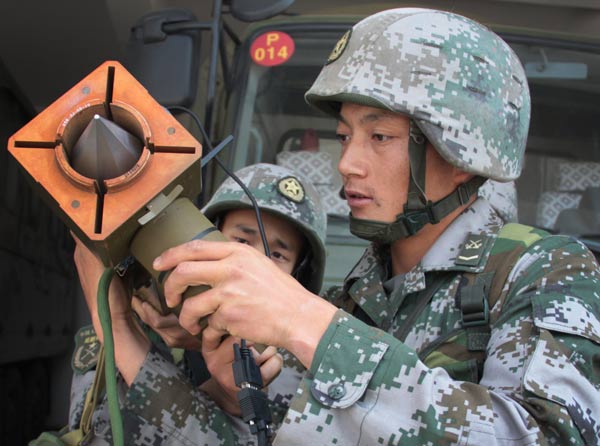 |
| Tashi Phuntsog (right), a soldier of the Tibetan ethnic group, demonstrates how to operate a portable rocket launcher in April. HU YONGQI / CHINA DAILY |
His arms show scars from numerous military exercises.
Born and raised in a farmer's family in Xigaze, the second-largest city in the Tibet autonomous region, Tashi Phuntsog, 25, a member of the Tibetan ethnic group, never had a chance to attend high school because of financial difficulties at home.
At 15, after graduating from a rural middle school, he began studying traditional Tibetan painting to decorate houses. He managed to excel in the technique after three years and became known for his craft in nearby neighborhoods.
"I could earn about 200 yuan ($32) a day painting exterior walls," he said. "It was a relatively decent income for local Tibetans. But I knew my body would not be able to sustain the labor when I hit 35."
Curious about the thousands of businessmen from the Han ethnic group in Tibet, he also wanted to know what was happening in the outside world.
In 2007, Tashi Phuntsog got an opportunity to change his life, and he took it. He enlisted in the army.
|
 |
In the seven years since, he has cultivated his literacy and become an outstanding soldier. He was deployed to an artillery regiment of the Chengdu Military Command and stationed in eastern Yunnan province.
Among the 1,500 soldiers in his unit are members of at least six ethnic groups - including Tibetan, as well as Yi and Miao from Yunnan, Sichuan and Guizhou provinces, said Zhu Jiang, the regiment's political instructor.
The regiment was named a role model for the army, with soldiers from several ethnic groups excelling as they fulfill their duty of safeguarding the 4,000-kilometer stretch of China's national border in Yunnan.
Learning Mandarin
In 1998, the regiment was singled out by Jiang Zemin, then chairman of the Central Military Commission and Chinese president, as an example of how to improve military training and combat effectiveness.
But many ethnic minority soldiers must first learn Mandarin, an infrequently used language in some minority areas. Overcoming language barriers allows them to spend more time in military training.
When Tashi Phuntsog first arrived at the regiment's camp, he was usually quiet. His commander, Xu Guiping, noticed and presented him with a Tibetan-Mandarin dictionary. He had to start from the basic pinyin system based on faint memories from his middle school days.
Xu would inquire every time they met whether Tashi Phuntsog had completed his homework of copying pinyin and Chinese characters.
Chime Drolgar, a 22-year-old female Tibetan in the regiment, said she studied Mandarin on her own at night after fellow soldiers fell asleep. "You have to go faster when left behind," she said.
As they spoke different dialects, Chime Drolgar could not understand another Tibetan woman, Gondro Drolma, who is from Qamdo in eastern Tibet. They turned to Mandarin to communicate.
Sometimes, Chime Drolgar would invite other Tibetan soldiers, including Gondro Drolma and Galsang Lhamo, to learn their new language at the library, staying up until the lights were switched off at 11 pm.
Tashi Phuntsog and others had mastered the basics of their new language after a year, and even started to joke with other soldiers.
Lhagpa Dondrub, a 25-year-old from Tibet, was promoted to company commander based on his excellent year-end performance and sent to a military school to further his studies.
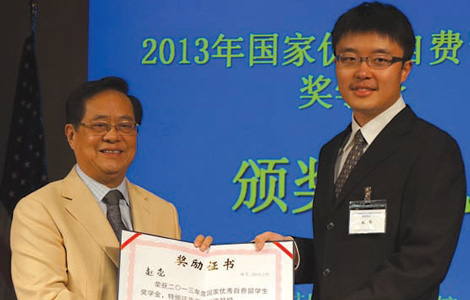
 China calls on talent worldwide
China calls on talent worldwide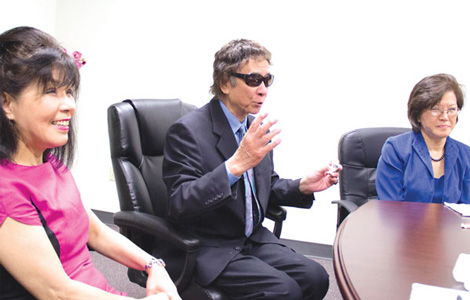
 Celebrated sculptor seeks to establish art museum
Celebrated sculptor seeks to establish art museum
 Multilateral drill marks navy's 65th birthday
Multilateral drill marks navy's 65th birthday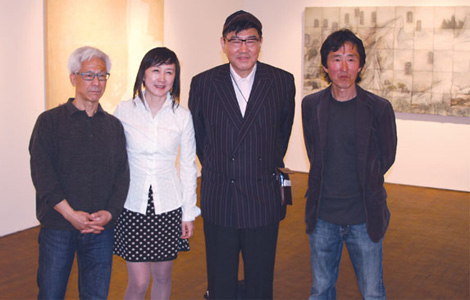
 MOCA to open Chinese ink show
MOCA to open Chinese ink show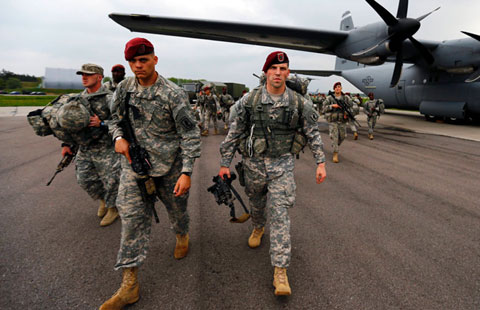
 US sends troops to Poland for exercises
US sends troops to Poland for exercises
 French 'spiderman' scales 33-story building in Macao
French 'spiderman' scales 33-story building in Macao
 2014 China Graduate Fashion Week in Beijing
2014 China Graduate Fashion Week in Beijing
 Top 10 celebrities driving auto brands
Top 10 celebrities driving auto brands
Most Viewed
Editor's Picks

|

|

|

|

|

|
Today's Top News
A window into China's big dilemmas
Celebrated sculptor seeks to establish art museum
China calls on talent worldwide
Infrastructure opening to foreign investors
Supreme Court ruling mixed news for SCA-5
Top Chinese legislator meets U.S. House majority leader
Obama criticized for Diaoyu Islands remarks
Opinion: Asia's future at risk
US Weekly

|

|







